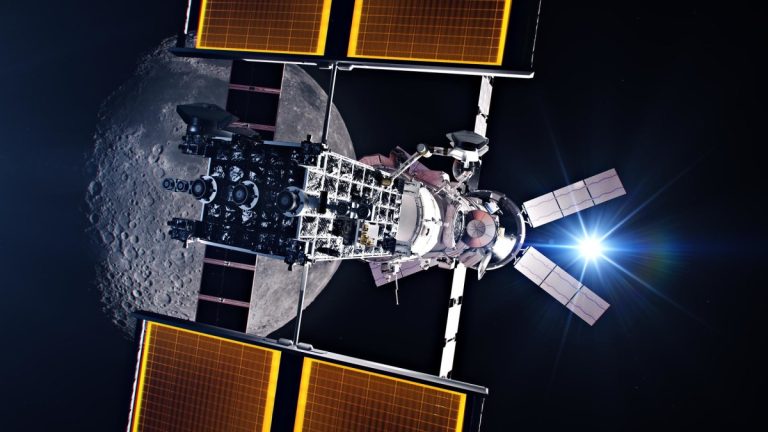
DoD a main proponent of anti-satellite test ban: ‘We are not disarming’ (Image Credit: Space News)

WASHINGTON – The Biden administration’s decision to ban anti-satellite missile tests had strong backing from the Defense Department as the military’s own guidelines prohibit debris-creating space activities, a senior official said April 20.
Vice President Kamala Harris on Monday announced that the United States will not conduct so-called direct-ascent tests where missiles are launched from the ground to target and destroy satellites in orbit. She said the U.S. will push for every nation to join the test ban and establish norms for responsible behavior in space.
“This has been a long time coming,” Hill said at a Center for Strategic and International Studies online event.
“Space related rules and norms of responsible behavior are in our interest,” Hill said.
He noted that DoD’s own space behavior guidelines issued last year require operators to “limit the generation of long-lived debris.” So the vice president’s announcement was a positive step forward, Hill said.
All routine space activities generate some debris but anti-satellite (ASAT) tests like those conducted by China in 2007 and by Russia in 2021 create dangerous fragments that threaten all space operations, he said.
One of the problems today is that different actors use different definitions of what constitutes dangerous debris, he said. “Even after the recent 2021 test, Russia has claimed that the debris they created was not harmful, despite astronauts and cosmonauts having to shelter [aboard the International Space Station] and despite having caused repeated risks to satellites in low Earth orbit, risks that will continue for years to come.”
Hill pushed back on criticism from Republican lawmakers that placing a moratorium on ASAT tests weakens the U.S. posture in space.
“Will this norm put the United States at a disadvantage? No, it will not,” said Hill. “This is not disarming, we’re not disarming. This norm is not focused on any technological capability, but on behavior that we want to dissuade and encourage people to not undertake.”
“This is not just about space security, but about underpinning the long term ability to continue human exploration in space, to observe the Earth from space, to communicate around the world through space, and to expand new and novel economic uses of space such as in orbit, servicing, assembly and manufacturing,” Hill added.
Test ban benefits U.S.
Todd Harrison, CSIS senior fellow and defense analyst, said DoD has nothing to lose and a lot to gain by endorsing the ASAT test ban.
“Direct ascent is a capability that we don’t really need,” he said. “It’s not that useful to us.”
And if that capability were needed for some reason, “we don’t need to test it. We already know we have it. We know it works,” Harrison said.
A destructive test makes no sense “even in a conflict,” he said. “I think this is something that we would rarely if ever consider using just because of the debris creation. It is going to hurt us, likely more than it would help in any kind of military conflict.”
The benefit of adopting a test moratorium “certainly exceeds any risk or cost involved,” he said.
“It allows the U.S. to retake a leadership role on the international stage when it comes to advancing responsible behavior and responsible norms of behavior,” Harrison added. “And it puts China and Russia in particular on the defensive to justify why they won’t implement a moratorium themselves and why they would want to continue testing in this irresponsible way.”
Brian Weeden, director of program planning at the Secure World Foundation, called the move to ban missile tests a “very pragmatic starting point.”
One reason why international discussions on space weapons have been stagnant for decades is that they’ve been stuck on how to define a space weapon, and how to track, monitor and verify, Weeden said.
Direct-ascent tests are “really easy to see and verify,” he said.
It’s encouraging that the administration views this as a “starting point of a broader conversation,” Weeden said. If other countries follow along, “then maybe this turns into a broader set of pledges or even a legally binding agreement down the road, because that’s where we need to head.”
“And this puts a lot of pressure on Russia and China, who have been saying that they’re against weaponization,” he said. “If they really believe that, then it should be easy for them to sign up to this and put up their own pledges. Because they’re also using space.”








